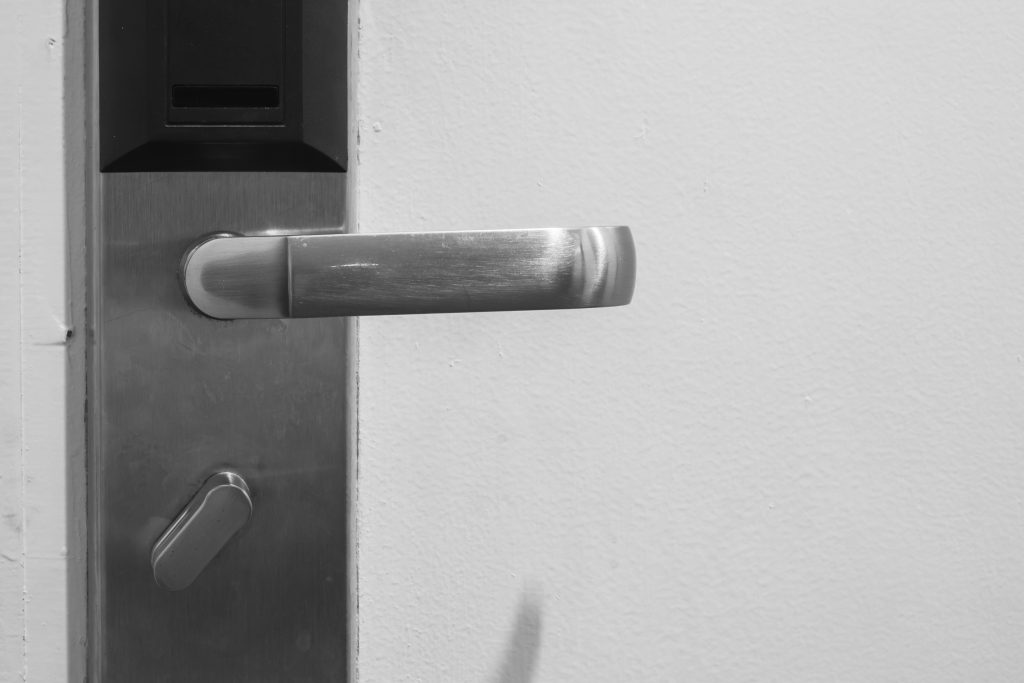
www.optimistdaily.com
This Jamaican student’s invention is reshaping hygiene in hospitals
BY THE OPTIMIST DAILY EDITORIAL TEAM
What began as a student project has become a beacon of hope for healthcare hygiene. Rayvon Stewart, a Jamaican software engineer, was just 23 years old and studying at the University of Technology in Kingston when he invented a UV-powered door handle that disinfects itself after every use. Called Xermosol, the device is capable of killing 99.9 percent of pathogens while remaining safe for humans and animals.
“I saw how patients were suffering, the assistance that they needed, and how difficult it was for the nurses,” Stewart said. His experience volunteering at a hospital deeply moved him and sparked the idea for a product that could ease one of the most persistent challenges in clinical settings: the spread of germs through shared surfaces.
From rural roots to innovation recognition
Stewart grew up in Mount Prospect, a small rural farming community, where he was raised by his grandmother. Despite financial challenges, Stewart and his cousin became the first in their family to attend university. There, he discovered a love for inventing. His first creation was a 3D modeling tool to help online shoppers virtually fit clothing. But it was his drive to solve real-world health issues that defined his path forward.
Today, Xermosol benefits from provisional patent protection under the Patent Cooperation Treaty. The product has earned Stewart a range of accolades, including Jamaica’s Prime Minister’s National Youth Award and the Commonwealth Health Innovations Award.
Dr. Camille-Ann Thoms-Rodriguez, a microbiologist at the University of the West Indies, called the invention “an innovative tool that can be used alongside [hospital protocols] for infection control.” She added: “We’re very proud of him.”
Caribbean innovation gains global traction
Stewart’s invention has become more than a promising health tech solution; it is now a symbol of the Caribbean’s untapped innovation potential. “A lot of the innovation that we see in healthcare is often from a first-world country where there are more resources,” said Dr. Thoms-Rodriguez. “But it doesn’t mean that we don’t have good ideas here.”
Alison Drayton, assistant secretary-general of the Caribbean Community (CARICOM), praised Xermosol as “a life-saving design that fits our reality” and a “powerful expression of what happens when innovation is rooted in purpose and fuelled by resilience.”
A tech shift rooted in purpose and promise
Stewart is part of a broader shift in how Caribbean youth are engaging with science and technology. Kirk-Anthony Hamilton, co-founder of Tech-Beach Retreat, noted that young people in the region are increasingly driven to develop high-impact, globally relevant ideas. “Now we’re understanding that there is this massive space to operate in—one that affords even greater opportunity and access,” he said.
This tech momentum isn’t just limited to inventors. BairesDev, a global software company, reported a 400 percent rise in Caribbean applications for developer roles between 2020 and 2024. According to the company’s director of talent acquisition, Felipe Turra, the pandemic-driven demand for digital solutions and the region’s alignment with U.S. culture and language have made the Caribbean a prime growth market.
For Stewart, this progress is both inspiring and long overdue. “We’re challenging the myth that there isn’t awesome, life-changing technology in the Caribbean,” he said.The post This Jamaican student’s invention is reshaping hygiene in hospitals first appeared on The Optimist Daily: Making Solutions the News.










